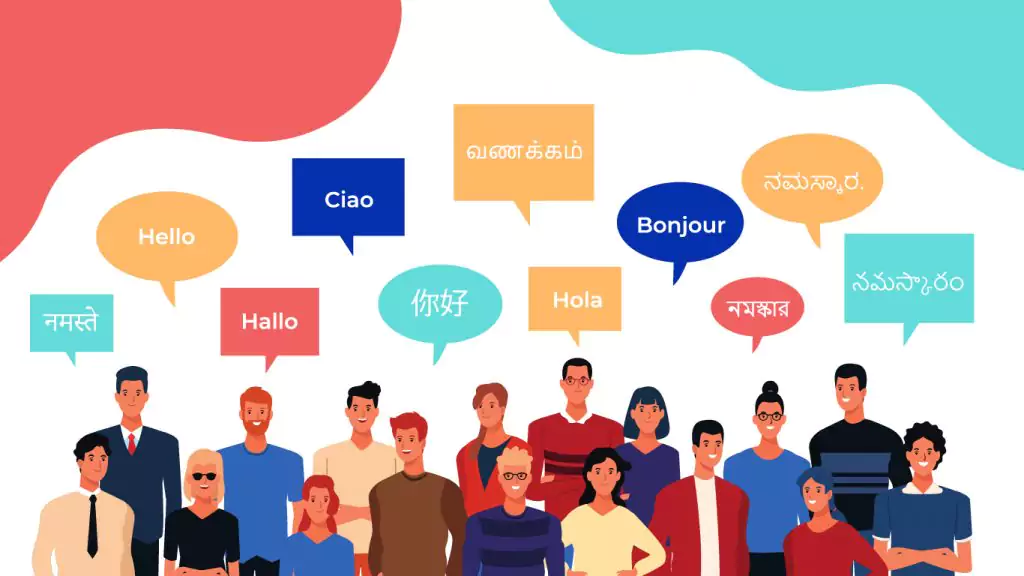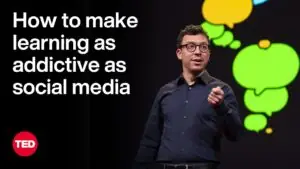
Key Takeaways
- The challenge of developing a consistent study habit can be mitigated by a flexible and varied approach to language learning
- The intricacies of different languages, such as phrasal verbs in English or liaisons in French, can pose substantial obstacles to language learners.
- Transitioning from passive language consumption (reading and listening) to active use (writing and speaking) is often a significant hurdle, underscoring the importance of practice and application in language learning.
- The use of slang and colloquialisms in everyday conversations can be both a challenge and a marker of fluency
Meet Jane Curtis, an ambitious language learner. She has spent the last decade honing her skills in several languages. From the chatty streets of Paris to the busy hawker stalls of Beijing, her linguistic journey has led her through a maze of interesting and challenging experiences. On social media, she posted about her struggles and triumphs, sparking a conversation that resonates with language learners worldwide.

✅ AI Essay Writer ✅ AI Detector ✅ Plagchecker ✅ Paraphraser
✅ Summarizer ✅ Citation Generator
Finding the Balance in Study Habits
One challenge that Jane and many others in her community have grappled with is establishing a consistent, long-term study habit. User “DavidH” pointed out that the key to overcoming this obstacle may lie in flexibility. He suggested carving out a set time each day for language study but varying the activities according to motivation.
“For me, I feel like what’s helped the most in getting me to study consistently is letting myself do whatever I feel motivated to do…watch some YouTube videos in Chinese, listen to a Chinese podcast, write out some characters…this approach was a MASSIVE game changer…the only way I’ve managed to study consistently for a long period of time” (DavidH).
Flexibility is Key
Several users echoed Jane’s frustration with the complexities inherent in different languages. “SpeakEZ” found English phrasal verbs and pronunciation, French liaisons, and the speed at which native Spanish and Italian speakers talk to be particularly challenging. Meanwhile, “LangLearner99” expressed the difficulty of understanding native speakers, especially when they used slang, and the importance of consistent practice.
“Understanding native speakers…the amount of slang you have to learn. The only remedy for this is practice…U just gotta keep getting comprehensible input until your brain starts understanding” (LangLearner99).
From Passive to Active Language Use
Passively absorbing a language is one thing, but actively using it is another beast entirely. User “Scribe” pointed out that writing and speaking in a new language posed a unique challenge, highlighting the difficulty of transitioning from understanding to producing language.
“The ‘active’ part of the language, which is writing and speaking…if I need to compose a sentence or talk with people, I often have difficulties to apply what I have learnt” (Scribe).
Encountering Slang and Local Dialects
An unexpected hurdle for many, including Jane, was the prevalence of slang in everyday conversation. “Cosmopolite” described how years of studying English and French did not prepare him for the onslaught of colloquialisms and local dialects he encountered when he moved to London and Paris.
“Always always always the slang…Half of the speech was slang you won’t find in any textbook…But it’s also always fun when you start getting it and natives compliment you. I think that truly means fluency to me” (Cosmopolite).
Conclusion
From this vibrant exchange of experiences, it’s clear that the journey of language learning is filled with unique challenges and victories. Jane Curtis’ story and the experiences shared by others underscore the complexities of language learning, ranging from consistent study habits and understanding linguistic intricacies, to transitioning from passive to active language use and grappling with local dialects and slang. These findings serve as a testament to the commitment, flexibility, and perseverance needed in mastering a new language, providing valuable insights for both current and future language learners.
Related stories:
Language Learning Showdown: iTalki, Preply, and Beyond
Is Discord a good place to learn a language and join a language learning community?
Duolingo vs. Immersion: The Great Language Learning Debate
Follow us on Reddit for more insights and updates.





Comments (0)
Welcome to A*Help comments!
We’re all about debate and discussion at A*Help.
We value the diverse opinions of users, so you may find points of view that you don’t agree with. And that’s cool. However, there are certain things we’re not OK with: attempts to manipulate our data in any way, for example, or the posting of discriminative, offensive, hateful, or disparaging material.